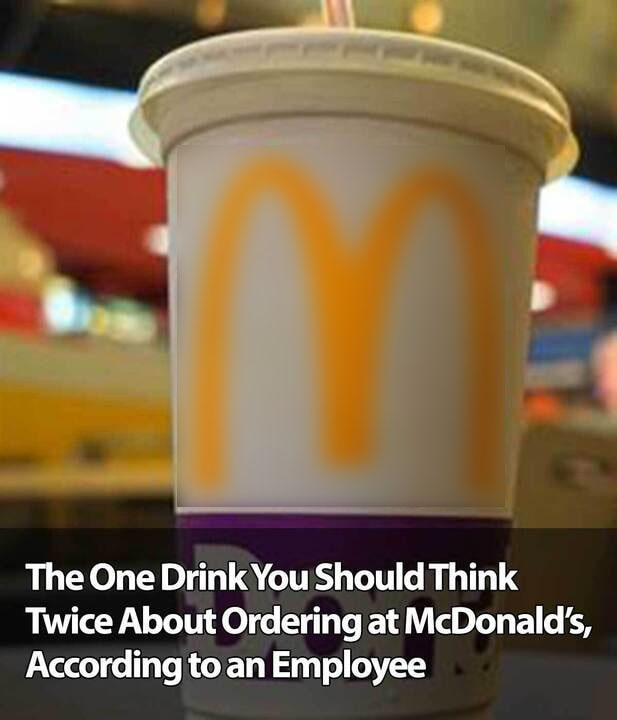
McDonald’s, well-known for quick and delicious meals, harbors a secret in its McCafe coffee machines, rendering them a questionable choice for caffeine enthusiasts. Here’s why you might want to think twice before your next McDonald’s drink order.
Neglect and Contamination
Despite the convenience, there is disturbing reality: the McCafe machines are often neglected, which leads to extremely unhygienic conditions unfit for many things, but especially beverage preparation. An anonymous McDonald’s employee said that these machines have layers of filth, with “5+ inches of uncleaned, liquid making up its inside parts.” Despite attempts to highlight these issues to management, little has been done to rectify the situation, leaving customers unknowingly exposed to potential health hazards.
The lack of proper training and maintenance protocols only makes the problem worse, because staff members and even managers remain ill-equipped to address the cleanliness of these machines. Additionally, the process requires special tools and expertise, making efforts to uphold hygiene standards even more difficult.2 Without proper training, making sure McDonald’s drinks are prepared safely in these machines becomes a daunting task.
Some locations prioritize cleanliness and use consistent cleaning routines for the McCafe machines, but disparities persist across the chain. The inconsistency in sanitation practices becomes a health gamble; clearly there is a need for standardized cleaning protocols to ensure customer well-being.
Exploring McDonald’s Drink Alternatives
McDonald’s pivot for a share of the coffee market is evident with the relaunch of its McCafe brand, and the franchise does offer an array of coffee options. The move represents a shift in the company’s business model, positioning itself as a formidable competitor to established coffee chains like Starbucks, and at a markedly lower price. However, the revelations of the McCafe machine cleanliness (or lack thereof) cast a shadow over the brand’s aspirations for coffee dominance, highlighting the importance of prioritizing hygiene in all facets of operations.
In light of these revelations, consumers are urged to exercise caution when getting a McDonald’s drink for their coffee fix. Consider alternative options from reputable coffee chains that offer a delicious alternative (that is also safe to drink) until reforms can be implemented. Consumer health and safety should be a higher priority for the fast-food industry, and any way to prompt stakeholders to advocate for better hygiene standards is encouraged.
In the future, McDonald’s must adopt a more proactive approach to addressing the cleanliness lapses in its McCafe machines, whether that be robust training programs, more stringent maintenance protocols, or some other option, across all its locations. By prioritizing hygiene and consumer safety, McDonald’s can reaffirm its commitment to excellence and regain the trust of discerning coffee enthusiasts worldwide.
A Wake-Up Call for McDonald’s
Morning McDonald’s drinks are in peril ad face increasing pressure to address the cleanliness issues surrounding its McCafe machines. Upholding transparency and accountability in addressing these challenges is essential to securing consumer trust and preserving the brand’s integrity in the competitive coffee market. Until then, consumers are advised to approach McCafe beverages with caution, mindful of the potential risks associated with neglected and contaminated equipment.
Consumers now navigate the plethora of choices in the coffee landscape, so prioritizing quality, cleanliness, and safety seems like a no-brainer. McDonald’s stands at a crossroads, poised to redefine its approach to coffee service and emerge as a leader in hygiene and customer satisfaction. By heeding the warnings regarding McCafe machines and taking decisive action to address these concerns, McDonald’s can be a cleaner, safer, and more reputable coffee experience for all. In the pursuit of convenience, let us not compromise on our health and well-being.

















